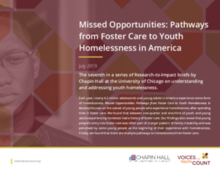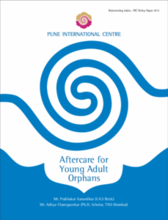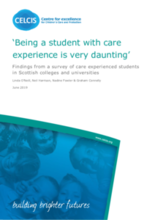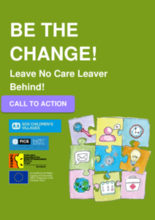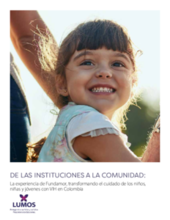Displaying 451 - 460 of 991
This review examines the legislative history leading up to extended care, the research on youth leaving foster care, youth preferences for extended care, the competition of extended care with permanency options, and the effects of extended foster care on transition-age youth.
This Research-to-Impact brief is the seventh in a series of briefs that presents key findings from Voices of Youth Count. It elevates the voices of young people whose pathways into homelessness included time in foster care and points to opportunities for prevention and intervention.
This paper attempts to recommend a suitable policy framework of aftercare services for Young Adult Orphans (YAOs) in India, with special reference to the state of Maharashtra.
This review aimed to identify, appraise, and synthesize published literature concerned with the reunification of looked‐after children with their birth parents in the United Kingdom
The research presented in this report aimed to broaden and deepen understanding of the barriers and enablers that care experienced students encounter in going to, being at and staying at college and university in Scotland.
This paper is concerned with outcomes for young parents in and leaving care and draws on findings from a post-doctoral fellowship study conducted in Wales.
This study was aimed at assessing whether the Journey Up Mentorship Program in Salt Lake City improved outcomes for those aging out of foster care in the US state of Utah.
Guided by the life course principle of expected ‘diversity in life course trajectories’ this paper identifies the pathways taken through education among 18 care-experienced adults (aged 24–36) in Ireland and some of the experiences and events that influenced these pathways.
The content of this Call to Action comes from what was heard from young people with care experience as well as from the professionals working with them. It outlines three primary actions to realize careleavers' rights in the law and in practice and to allocate adequate funds for realizing these rights.
Este informe documenta el proceso de la organización Fundamor a cerrar su internado y, con el apoyo de Lumos, reubicar a los niños y niñas internos en nuevas modalidades de atención familiar.

